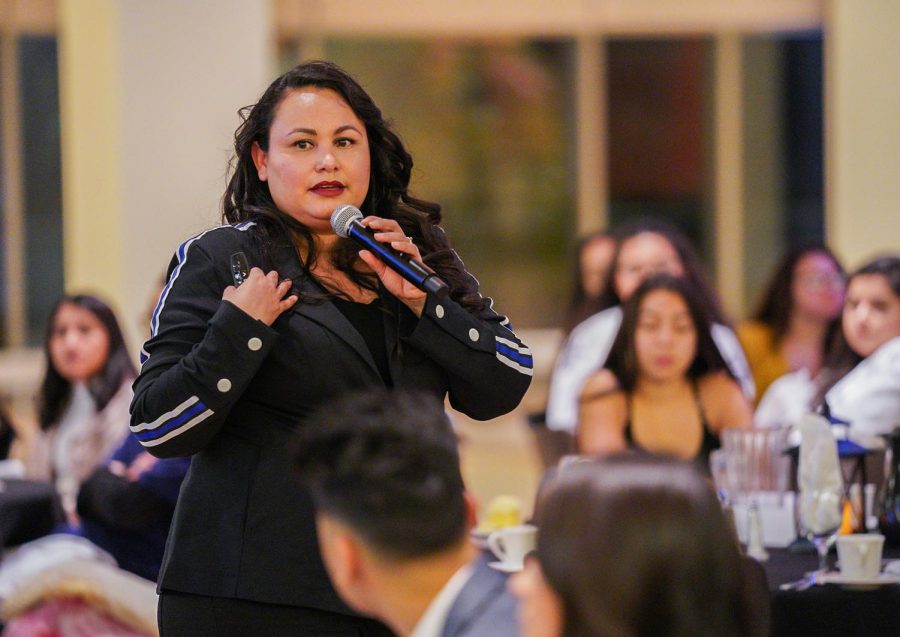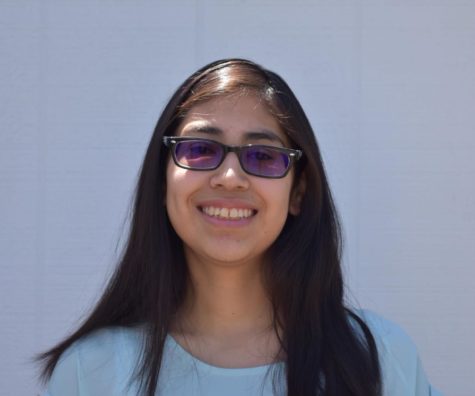Speaker addresses stigma around mental health
WSU celebrates its 41st annual Gabriel Cardenas Memorial Banquet
Karla Blanco, assistant professor and clinician at the University of Idaho asks students to share their thoughts on the high rate of Latinos committing suicide at the CUB Senior Ballroom.
October 27, 2019
The 41st annual Gabriel Cardenas Memorial Banquet featured keynote speaker Karla Blanco, who spoke about mental health stigma within the Latinx community Friday in the CUB Senior Ballroom
The Gabriel Cardenas scholarship was made to honor the life of Gabriel Cardenas, who studied at WSU. The banquet concluded the weeklong celebration of Semana de la Raza.
Rafael Pruneda, College Assistance Migrant Program academic coordinator and retention specialist, said thousands of dollars have been given to Latinx Chicanx students because of the endowment scholarship.
“We should be embracing each other, being inclusive of others, and help people understand the celebrations that we’re trying to promote in La Semana de la Raza,” Pruneda said.
It is always great as a community to recognize students and everybody in the community throughout the weeklong celebration of Semana de la Raza, Pruneda said.
The hope is to have everyone come together for the event to enjoy themselves while being unified, he said.
Karla Blanco, assistant professor and clinician at the University of Idaho, said education creates a pathway to make positive changes in the community and in the country.
Education gives people a seat at the table to have a say in decisions affecting communities, she said.
Many things in people’s lives can be taken away, but nobody can take someone’s education, Blanco said.
Many Latinx individuals don’t talk about their mental health because there is a stigma associated with mental health struggles, Blanco said.
There is an assumption in the Latinx community that people seeking mental health services are weak and crazy, but that is not the case, she said.
“We undermine our own mental health because we think other people have it worse,” Blanco said.
Manuel Acevedo, director of Multicultural Student Services, said it is important for the Latinx community to have a sense of presence and ownership. He said he hopes the community will be inclusive, welcoming and anti-xenophobic.
Acevedo said a university education is a privilege, so students should “keep an eye on the prize,” which is graduating and supporting each other.











Harold A Maio • Oct 28, 2019 at 8:54 am
Re: News Speaker addresses stigma around mental health
We are taught to accept there is a stigma around mental health , the speaker apparently has been so taught: She is not addressing it, she is asserting it.
That there are people taught there is a stigma does not mean there is, it means only that a person has been taught there is.
Harold A Maio, retired mental health editor